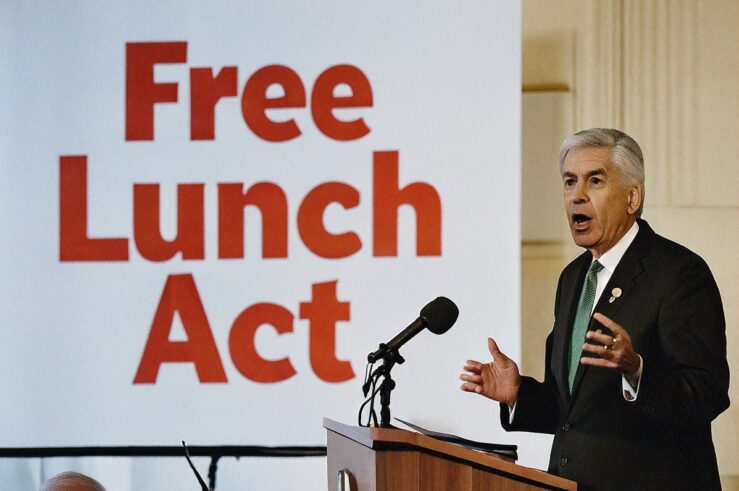Douglas Holtz-Eakin and my former George Mason colleague and Nobel Laureate Vernon Smith are in the WSJ today discussing the economic wisdom and constitutionality of ObamaCare. From the WSJ:
The Obama administration defends the mandate on the ground that a person’s decision to not buy health insurance affects commerce by materially increasing the costs of others’ health insurance. The government adds that health care is unique and therefore can be regulated constitutionally in ways other markets cannot.
In reality, the mandate has almost nothing to do with cost-shifting. The targeted population—the young, healthy and not poor who choose to forgo coverage—has a minimal role in the $43 billion of uncompensated health-care costs. In 2008, for example (the latest figures available), the Department of Health and Human Service’s Medical Expenditure Panel Survey showed that the uncompensated care of the mandate’s targeted population was no more than $12.8 billion—a tiny one-half of 1% of the nation’s $2.4 trillion in overall health-care costs. The insurance mandate cannot reasonably be justified on the ground that it remedies costs imposed on the system by the voluntarily uninsured.
The government’s other defense is that the health-care market does not exhibit textbook competition. No market does. The economic features relied upon by the government—externalities, imperfect information, geographically distinct markets, etc.—are characteristic of many markets. The presence of externalities and other market imperfections does not justify a departure from the normal rules of the constitutional road. Health care is typically consumed locally, and health-insurance markets themselves primarily operate within the states. The administration’s attempt to fashion a singular, universal solution is not necessary to deal with the variegated issues arising in these markets. States have taken the lead in past reform efforts. They should be an integral part of improving the functioning of health-care and health-insurance markets.
Holtz-Eakin and Smith conclude:
Without the individual mandate, ObamaCare imposes total net costs of $360 billion on health-insurance companies from 2012 through 2021. With the mandate, the law would provide a net $6 billion benefit—i.e., revenues in excess of costs—over that same time period. In other words, the benefits of the individual mandate to health-insurance companies, along with their additional revenues provided by ObamaCare’s Medicaid expansion, are projected to balance, nearly perfectly, the costs that the law’s various regulatory mandates impose on insurers.
The individual mandate and Medicaid expansions appear to many to be unconstitutional. They are certainly bad economic policy. When they go, the entire law must fall. The administration built an intricate, balanced policy on a flawed economic foundation. It is up to the Supreme Court to pull it down.
Go read the whole thing.




